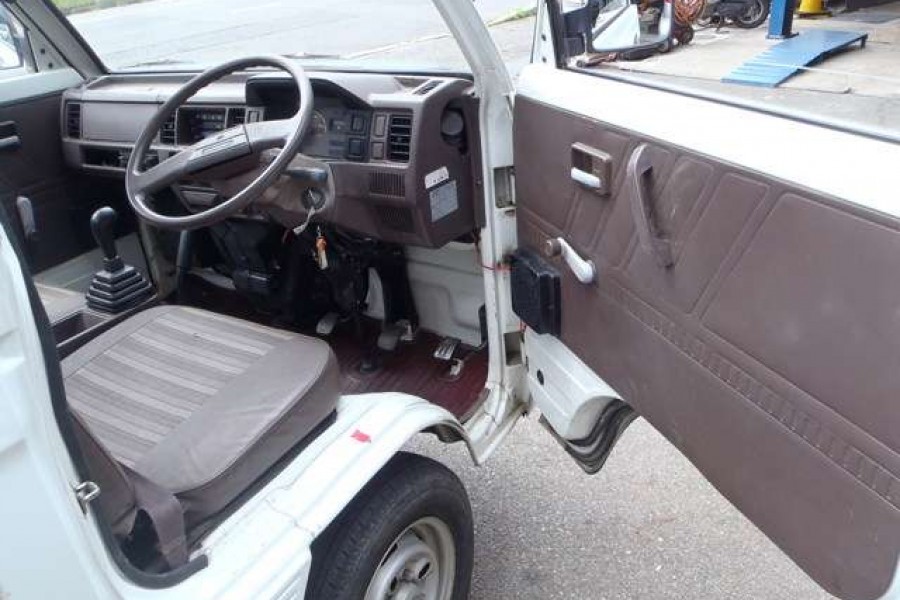When it comes to autos, the alternator serves as the heartbeat of vehicles like the Honda Acty, ensuring a seamless flow of electricity to vital systems. However, with this critical role comes the potential for challenges that can disrupt the driving experience. In this article, we’ll delve into the world of the Honda Acty alternator, exploring its functions, common issues, and troubleshooting tips to empower drivers in maintaining their vehicle’s reliability and performance.
Understanding the Alternator
At its core, the alternator serves as a generator, converting mechanical energy from the engine into electrical power. This electricity powers various systems within the vehicle, from lights to the stereo and even the ignition system. In the context of the Honda Acty, a compact and efficient vehicle often used for commercial purposes, the alternator’s role becomes even more significant due to its reliance on electrical power for both propulsion and operational functions.
The alternator ensures that the battery remains charged while the engine is running, providing the necessary electrical energy to keep all systems operational. Understanding the alternator’s function allows drivers to appreciate its importance in maintaining a smooth and reliable driving experience with their Honda Acty. Whether navigating busy urban streets or traversing rugged terrain, a well-functioning alternator ensures that the vehicle remains powered and responsive to the driver’s needs.
Key Functions of the Alternator
Here are some of the key functions that an alternator serves in a vehicle.
Charging the Battery:
One of the primary functions of the alternator is to charge the battery while the engine is running. This ensures that the battery remains at optimal levels, providing sufficient power to start the engine and support various electrical components of the vehicle. In the Honda Acty, a dependable alternator is crucial for maintaining consistent power supply, especially in demanding situations such as frequent stops and starts during delivery runs or transportation routes.
Powering Electrical Systems:
Beyond charging the battery, the alternator is responsible for providing electricity to power the vehicle’s electrical systems. This includes everything from headlights and taillights to the dashboard instrumentation and interior accessories like the radio and air conditioning. In the Honda Acty, efficient alternator performance is essential for ensuring that these electrical systems operate seamlessly, enhancing driver comfort and safety during extended journeys or long workdays.
Supporting Ignition System:
Another critical function of the alternator is to support the ignition system, which is essential for starting the engine. The alternator provides the necessary electrical energy to ignite the fuel-air mixture within the engine cylinders, enabling combustion and initiating the engine’s operation. In the Honda Acty, a reliable alternator ensures consistent ignition performance, facilitating smooth engine starts and reliable operation, even in challenging weather conditions or high-altitude environments.
Maintaining Voltage Stability:
The alternator also plays a vital role in maintaining voltage stability within the vehicle’s electrical system. By regulating the output voltage, the alternator ensures that electrical components receive a consistent and reliable power supply, regardless of fluctuations in engine speed or electrical demand. This stability is essential for preventing damage to sensitive electronic components and ensuring the overall efficiency and longevity of the vehicle’s electrical system, a particularly crucial aspect in the Honda Acty, known for its compact yet versatile design.
Balancing Electrical Load:
Additionally, the alternator helps balance the electrical load within the vehicle, distributing power efficiently to meet the demands of various electrical components. By dynamically adjusting the output voltage and current, the alternator optimizes energy usage, preventing overload situations that could lead to system failures or excessive strain on the engine. In the Honda Acty, which often operates in diverse environments and usage scenarios, a well-functioning alternator is essential for maintaining peak performance and reliability, ensuring that drivers can depend on their vehicle to meet their transportation needs effectively.
Common Honda Acty Alternator Issues and Troubleshooting
Despite its reliability, the alternator is not immune to wear and tear. Here are some common issues that Honda Acty owners may encounter.

1. Belt Tension and Wear:
One common issue with alternators is related to the belt that drives them. Over time, the belt may become loose or worn, affecting the alternator’s ability to generate electricity efficiently. Drivers may notice squealing noises coming from the engine or dimming lights, indicating a potential belt tension problem. Regular inspection and adjustment of the belt tension, as well as replacement if necessary, can help resolve this issue.
2. Electrical Connection Problems:
Another common issue involves electrical connections to the alternator, including terminals and wiring. Corrosion, loose connections, or damaged wiring can disrupt the flow of electricity, leading to erratic charging or complete failure of the alternator. Drivers experiencing intermittent charging issues or warning lights on the dashboard should inspect the electrical connections and address any issues promptly to ensure proper function.
3. Faulty Voltage Regulator:
The voltage regulator is a crucial component of the alternator, responsible for regulating the output voltage to maintain a consistent electrical supply. A faulty voltage regulator can cause overcharging or undercharging of the battery, leading to electrical system malfunctions or battery failure. If drivers notice erratic voltage readings or battery-related issues, such as difficulty starting the engine or dimming lights, the voltage regulator may need to be replaced.
4. Bearing Wear and Noise:
Over time, the bearings inside the alternator can wear out, leading to increased friction and noise during operation. Drivers may hear grinding or whirring noises coming from the alternator, indicating bearing wear. Left unaddressed, bearing issues can eventually lead to alternator failure. Regular maintenance, including lubrication of bearings or replacement if necessary, can help prevent this problem and prolong the alternator’s lifespan.
5. Diode Failure:
The alternator contains diodes that convert AC voltage generated by the alternator into DC voltage for use by the vehicle’s electrical system. Diode failure can result in electrical system malfunctions, including flickering lights or erratic charging. Drivers experiencing these issues may need to have the alternator tested to identify diode failure and replace the faulty components.
Troubleshooting Tips:
When encountering alternator issues in the Honda Acty, drivers can follow a few troubleshooting steps to diagnose and address the problem. Start by checking the alternator belt tension and condition, inspecting electrical connections for corrosion or damage, and testing the voltage output of the alternator. If issues persist, seeking professional assistance from a qualified mechanic or automotive technician is recommended to ensure proper diagnosis and repair. By staying vigilant and addressing alternator issues promptly, Honda Acty owners can maintain the reliability and performance of their vehicles for years to come.
Conclusion
Every component plays a vital role in ensuring a smooth and efficient ride in a vehicle. The Honda Acty alternator, though often overlooked, serves as the beating heart of your vehicle’s electrical system, powering essential functions and keeping you on the road with confidence. By understanding its importance and addressing any issues promptly, you can ensure that your Honda Acty remains a dependable companion for miles to come.

